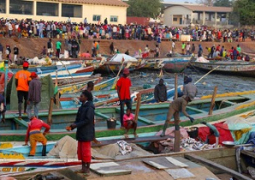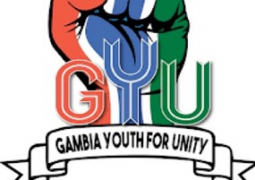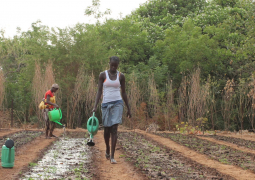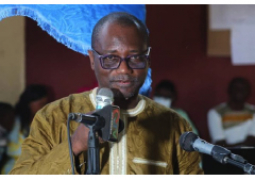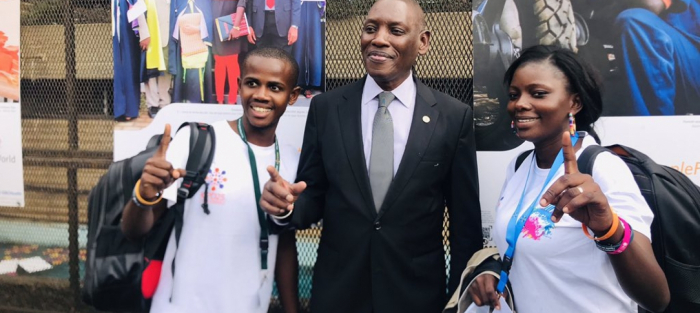
Based in Senegal’s capital Dakar, Mabingue Ngom has been a champion of the demographic dividend as a catalyst for Africa’s development. His agenda: put young people first. To mark this year’s International Youth Day, he spoke with Benjamin Tetteh for Africa Renewal on the ‘Youth Engagement for Global Action’ theme for 2020. Here are the excerpts:
Africa Renewal: How important is it to celebrate the International Youth Day?
Mr. Ngom: The youth agenda is very vital, not just for Africa but for the entire world because we are talking about a population that is now almost 1.9 billion. In some places, like in West and Central Africa, young people account for more than 60% of the population. The day is important because young people not only form majority of the population but are also the greatest asset of the continent.
Four years ago, heads of State and governments in Africa decided to elevate the demographic dividend as the go-to policy. Also, looking at the current COVID-19 situation where young people are really at the forefront of the fight against the pandemic, we see why celebrating the International Youth Day in 2020 is all about youth engagement and is vital.
How has COVID-19 impacted your work with the youth?
We anticipated that COVID-19 will hit Africa harder than anywhere else in the world because of weak health systems.
Second, the region had been in a crisis already before COVID-19 having the highest in concentration of fragile states.
But thanks to young people, youth engagement and the partnership with UNFPA [United Nations Population Fund] across the region, we have been able to deploy young people to the forefront of prevention, contact tracing, and the entire spectrum of interventions at the centre of community mobilization.
How are you coping?
We have been extremely flexible and creative and able to find new ways of working.
We have been able to provide the same quality of support to UNFPA country offices and I believe that country offices have been able to adapt and provide meaningful support to the member states, be it in terms of providing them with equipment, or the necessary know-how, and any other types of support for these affected communities.
It was an excellent opportunity for us to discover new ways of doing things.
I can say we have been more efficient because COVID-19 has pushed us to find ways to operate by cutting most of the transaction costs.
We have, for instance, elevated knowledge sharing which had been a big challenge for us, as a top priority. Sitting in Dakar, we are able to capture best practices from around the world - not only from our region, or Africa.
We have been really adaptable and flexible in finding new ways of consulting and having conversations. I can give you two or three examples.
We organized, two or three months ago, a virtual press conference with over 120 participants from around the world, to have a conversation around COVID-19 response and the challenges in West and Central Africa.
It was amazing because we have never had a press conference with more than 30-50 people.
Second, we were supposed to organize an event on demographic peace and security sometime in June 2020, but we decided to hold a virtual symposium which enabled us to achieve the same outcome.
So, flexibility has been key in driving our action.
The biggest challenge was how to balance the need to achieve what we had planned and a new way of doing things due to COVID-19, and also, how safeguard the health, safety and wellbeing our own colleagues.


